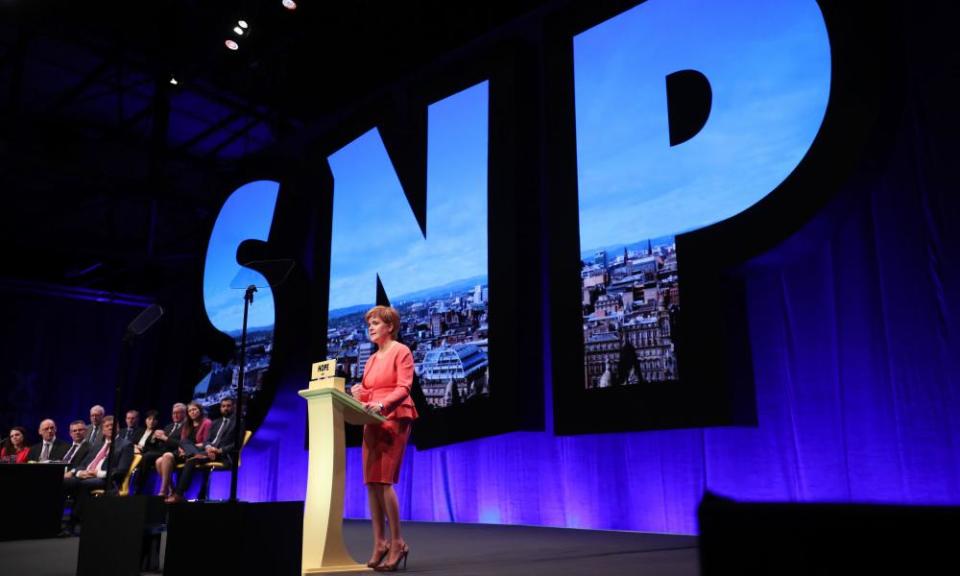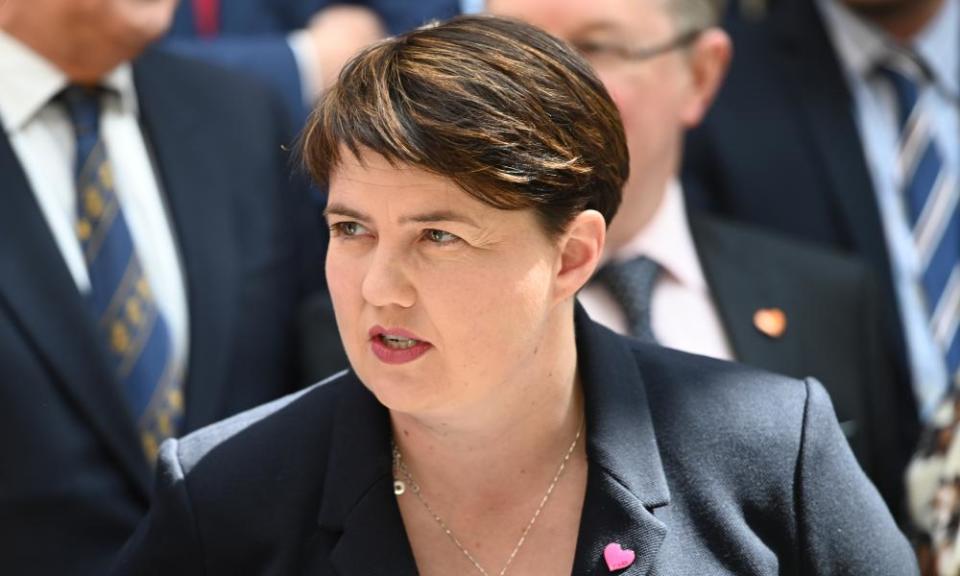Boris Johnson’s full English Brexit could rip the union apart

It is time to wake up, but there is barely a moment to smell the coffee. If Boris Johnson becomes prime minister, Britain will be sleepwalking towards the break-up of the United Kingdom. The minority who want this to happen are rubbing their hands at the prospect. The separate minority who say they don’t care if it happens seem beyond reasoned debate at present. But the majority who don’t want it to happen aren’t being much more attentive either. Unless this changes, they could be in for a shock more lasting than Brexit.
Related: Boris Johnson is self-destructing. How much of Britain will he drag down too? | Nesrine Malik
Even when the twists and turns of leaving the EU dominated the daily news in the early part of this year it was difficult to get many English politicians or commentators to focus for long on the destructive consequences for the union. Now that Brexit has become the defining doctrinal obsession of a Conservative party leadership election conducted in the shadow of the Brexit party, even less attention is being paid to those possible consequences, especially in England. But the forces that are driving Britain towards its break-up are not sleeping.
This is a problem with very deep and entangled historical roots. It embraces the centuries-long uneasy relationship between Britain and Ireland, and the increasingly confrontational modern one between Britain and Scotland. It highlights the failure of successive constitutional settlements to give a particular voice to Englishness. It ensnares not just the Tory and Brexit parties in its coils but Labour, too.
For a few more weeks, the face of the problem is still Theresa May. She intermittently mouthed decent words about the union while consistently following a Brexit policy that made the words sound like lies. She talked about the union as precious and beloved while ignoring widespread unease in the non-English parts of the UK about Brexit and her version of it. When she spoke in Belfast and in Scotland, she repeatedly exposed a tin ear for local sensitivities.
The partial recovery of the Tory party in Scotland in 2017 has done very little to change this default setting. Ruth Davidson, the Scottish Tory leader, has struggled to persuade most leadership candidates to temper their approach in ways that help Scottish Tories. Of the original contenders, probably only Rory Stewart possesses what one could call an intuitive understanding of Scotland and the union. This week’s offer by Jeremy Hunt to include Davidson in any Brexit negotiating team is a rare recognition that the union is genuinely at stake in the Brexit battle.

But if May had a tin ear, what words remain to describe Johnson? The Tory frontrunner’s own origins may be strikingly cosmopolitan but his chosen persona, as the man who made possible the Brexit that most Scots and Northern Irish oppose, is potentially toxic. That is especially true given his “do or die” approach to leaving the EU has swallowed the full English Brexit.
His occasional diatribes are characteristically unrestrained. “Allowing the Scots to make their own laws, while free-riding on English taxpayers … is simply unjust,” he once wrote. He said in 2012 that public expenditure in London was of greater value to the country than public expenditure in Strathclyde – and says that when the Scottish government overspends “they will come cap in hand to Uncle Sugar in London. And when they do, I propose that we tell them to hop it.”
The Scottish National party is increasingly confident about a second independence referendum in which Johnson’s personality may help to overturn the 2014 vote to stay in the UK. With Johnson as prime minister, it will be much easier for the SNP to frame an independence campaign not just as an anti-Brexit breakaway, but as an anti-English revolt. The SNP’s offer in 2019 is more separatist than in 2014. Back then, it said it wanted to keep the pound and maintain customs and market alignment with the UK. Now, post-Brexit, it feels confident enough to reject those links.
Consumed by Brexit, the Conservative party has allowed its thinking on the union to drift into reactionary English nationalism. But Labour is no better. Jeremy Corbyn’s indifference to whether Britain remains in the EU is matched only by an apparent indifference to whether the UK remains unified. In the words of Gerry Hassan and Eric Shaw in their fascinating book The People’s Flag and the Union Jack, Corbyn “seems no more at ease with Britishness than with Englishness”. His support for Irish unification sits alongside a readiness to facilitate an independent Scotland. If a future Corbyn government finds itself dependent on the nationalists, it seems certain that he would give the SNP the independence referendum it seeks – and might even support its yes campaign.
Related: I was Boris Johnson’s boss: he is utterly unfit to be prime minister | Max Hastings
Among major political figures, only Gordon Brown seems to grasp how much is at stake so immediately for the UK, and to have a strategy for preventing it. It was Brown who, more than anyone, brought urgency to the Better Together campaign in 2014. And it was Brown who warned in London this week that the union has never been in greater danger in its 300-year history because of what he called “divisive us-v-them nationalisms” in England driven by Johnson, the Tories and the Brexit party; and in Scotland, driven by the SNP.
Brown’s model of Britishness is open to challenge, but his imaginative grasp of the risks and importance of this moment is a towering reprimand to the timidity of today’s political leaders. If they do not find a way to keep the peoples of these islands together in a modern democratic union, they will open the way for those who will drive us apart.
• Martin Kettle is a Guardian columnist

 Yahoo News
Yahoo News 